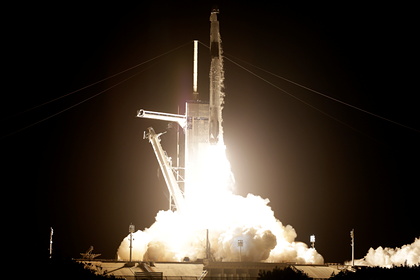SpaceX and NASA have proposed to the American astronauts who are currently on the ISS and should soon return to Earth to study "other ways to remove fluids from the body" after the incident with the toilet of the Crew Dragon spacecraft during the previous fully civilian flight. This is reported by RT with reference to the statement of the manager of the NASA commercial crew program, Steve Stitch.
NASA astronauts Shane Kimbrough and Megan MacArthur, as well as Akihiko Hoshide from the Japan Aerospace Exploration Agency and Thomas Pesquet from the European Space Agency, who went to the ISS on September 16 as part of the Crew 2 mission, were offered to reduce the use of the toilet provided in the capsule during the descent from orbit.
"We have other means to allow the crew to perform the necessary functions… Special pads are sewn into the astronauts' spacesuits, and the flight home does not last long," Stitch explained.
The malfunction of the toilet on the spacecraft was discovered during the historic Inspiration4 mission, during which American billionaire Jared Isaacman and three space tourists spent three days in orbit inside the Resilience spacecraft. Upon returning, the technicians found that during the flight, a part had somehow disconnected in the waste tank, as a result of which urine leaked into the ventilation system.
According to SpaceX Vice President William Gerstenmaier, this problem was fixed on the Resilience and Endurance ships that are on Earth, but the ship that is docked to the ISS is still faulty.
The crew of Crew 2 will return to Earth in early November after the crew of Crew 3 will arrive on the ISS to replace him. Earlier it became known that one of the astronauts, a participant in the new SpaceX mission, German Matthias Maurer (Matthias Maurer) planned to arrange a party on the International Space Station. The celebration will be dedicated to several events: on March 18, Maurer will celebrate his 52nd birthday, on this day the Russian Soyuz spacecraft will arrive at the ISS, and one of the American cosmonauts will set a record for staying in orbit.
Marina Sovina


